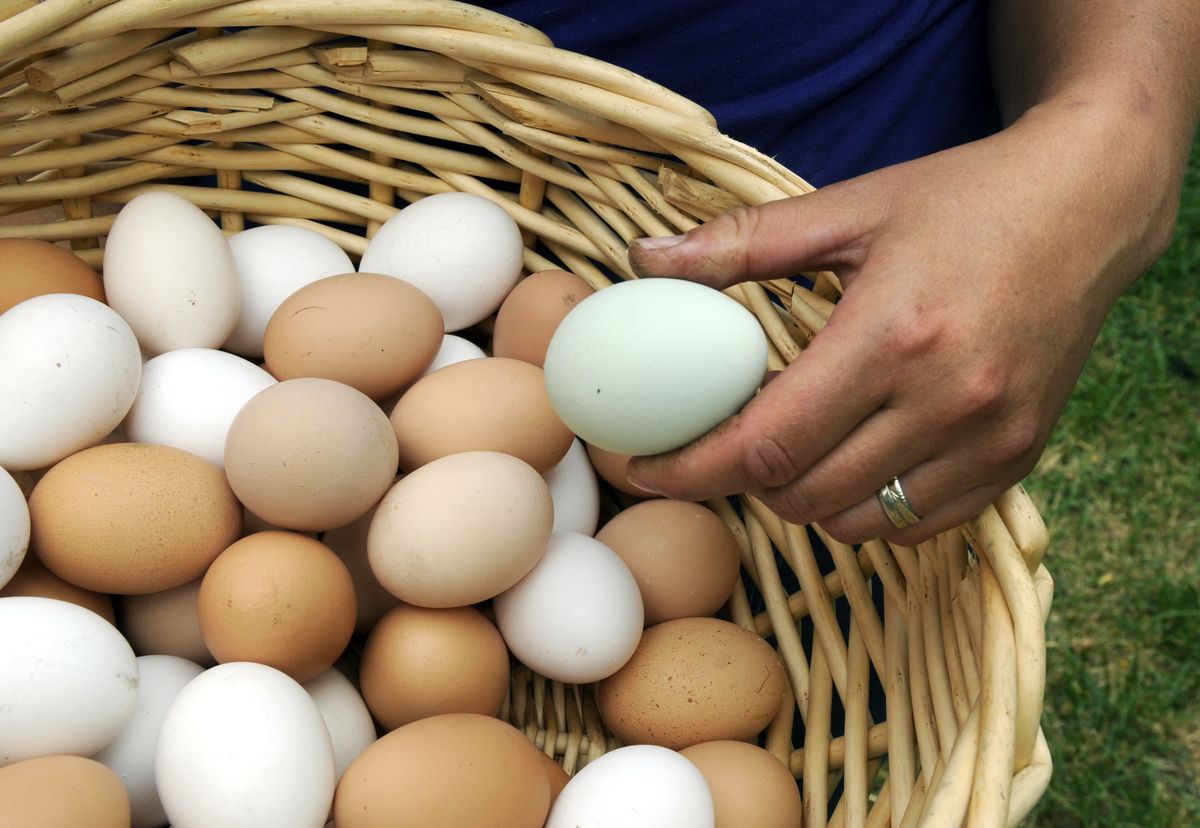Connected to the earth
Couple farms organic heirloom produce at Entropy

CHENEY – It’s not difficult to see how Kristen and Michael Silva ended up managing Entropy Fsarm in Cheney.
Her grandparents began running the farm in 1969. His family had a dairy farm in California and his mother was an avid gardener. So they both were accustomed to fresh food, and have a deep bond with the earth.
“Our favorite part of farming is having good food that’s always available. Well, in the summer months,” says Kristen. “But also just having that connection to the land. Being able to work on it every day. It’s such a quiet, peaceful environment. And being able to work at home, and to really see the fruits of your labor. I probably like that the best.”
Although they offer the usual produce, the Silvas’ chief focus is on heirloom and rare varieties of fruits and vegetables. Heirloom means open pollinated, non-hybrid plants. It also can mean old originEmeral varieties, which may not be as prolific or sturdy, but taste much better and have a higher quality than hybrid plants. Lodi apples are one example of the Silvas’ heirloom produce.
“We both consider ourselves conservationists,” says Kristen. “Preserving those rare and heirloom plants I think is really important. There aren’t many of them around.”
For rare varieties, the Silvas grow Nardello sweet peppers from Italy, Blue Kuri and Lakota squash, Cherokee Trail of Tears beans, orach, which is a magenta spinach, and Black Prince and Cherokee Purple tomatoes, which are mottled red and brown, not very appealing visually, but very tasty.
Their heirloom tomatoes are the most popular. Twelve different sweet varieties of assorted colors and shapes in a mixed cherry tomato basket make an attractive item. Also popular are their raspberries and green beans.
Kristen learned how to grow her mainstream produce while growing up on a farm. But for the heirloom and rare varieties she had to read many books, and learn through experience. All of the Silvas’ produce is certified naturally grown, meaning they are grown according to organic standards. The farm must undergo an inspection each year to retain its organic certification.
No artificial fertilizer is used. Instead the Silvas use a compost made on site of grass clippings, goat and chicken bedding and manure, and vegetable and fruit scraps. They also make compost tea with which they water the plants once a week. All these practices reflect the name of the farm.
“Entropy is the natural tendency of everything to break down into its component parts,” explains Michael. “For instance, we rely heavily on composting for fertilizer. All the plant matter that we add to the compost breaks down into its biological components, becomes readily available for uptake again by the plants in the soil. Just a concept of reusing, recycling nutrients, so nothing goes to waste.”
About one of their 14 acres is utilized for crops. Much of the land is rocky so there is limited good soil. No machinery is used, so they raise many lower-maintenance plants, as they’re right at the maximum for doing all the labor by hand. Their least favorite task is weeding. For a weed barrier they use black plastic mulch with a cornstarch base that biodegrades after 90 days for produce such as strawberries.
For rodent control they rely upon their three cats and birds of prey. Row covers protect the plants from insects. If they must spray they use Pyrethrum canola spray; an organic, short-lived substance derived from the blossoms of the Chrysanthemum. The canola helps the spray stick onto the plant. Also they do companion planting such as marigolds which help repel bugs, and nasturtiums which draw in bugs so they don’t bother the other plants.
In the future the Silvas plan to grow more fruit trees, heirloom apples, berries, and grapes. They’d like to relearn the lost art of root-cellaring, that is, keeping food over the winter. And one day they’d like to donate their land as a conservation easement so that it is never developed.
“We’re really connected to the place,” says Kristen. “We want to leave it better than it was when it started. Our goal is to stay here as long as we live, and hopefully pass it along to family once we’re gone.”